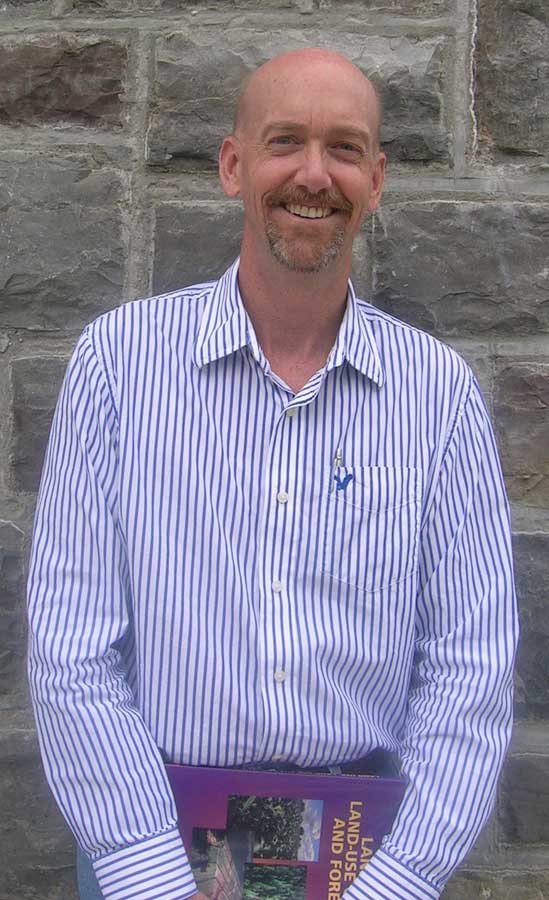Stephen Prisley recognized for contribution to 2007 Nobel Peace Prize

Stephen Prisley, associate professor of forest inventory and geographical information systems (GIS) in Virginia Tech's College of Natural Resources, has received a certificate commemorating his involvement with the International Panel on Climate Change (IPCC), which received the 2007 Nobel Peace Prize along with former Vice President Al Gore.
Prisley was one of many individuals who contributed to the work recognized by the prize committee “for their efforts to build up and disseminate greater knowledge about man-made climate change, and to lay the foundations for the measures that are needed to counteract such change.”
Prisley’s contributions included lead authorship of “Afforestation, Reforestation, and Deforestation (ARD) Activities,” part of an International Panel on Climate Change Special Report entitled Land Use, Land-Use Change, and Forestry. His work focuses on developing ways to use forest inventory and remote sensing data in estimating amounts of carbon sequestration (storage) in forested areas, which can then be used by land management organizations around the world to develop their own estimates. Accurate carbon sequestration estimates are critical because the release of carbon into the atmosphere contributes to global warming.
“Carbon sequestration through forest establishment is one of the most promising ways for reducing the buildup of greenhouse gases in the atmosphere,” noted forestry department head Harold Burkhart, “which is why Professor Prisley’s work is so important.” Carbon sequestration refers to ways to capture and store carbon dioxide, harmful emissions that are increasing in the world due to the expanded use of fossil fuels.
The panel was established jointly by the United Nations Environment Programme and the World Meteorological Organization in 1988 to address growing concerns about climate change. International Panel on Climate Change reports are written by teams of authors from all over the world who are recognized experts in their field, representing relevant disciplines as well as differing scientific perspectives.
“Participation in the [panel] was one of the most rewarding experiences of my professional life,” observed Prisley. “It was so stimulating to work alongside forest inventory specialists from around the world in crafting guidelines for developing carbon sequestration estimates.” Prisley received his bachelor’s, master’s, and doctorate degrees from Virginia Tech. He has been a professor in the College of Natural Resources since 1999.
The College of Natural Resources (http://www.cnr.vt.edu/) at Virginia Tech consistently ranks among the top five programs of its kind in the nation. Faculty members stress both the technical and human elements of natural resources and instill in students a sense of stewardship and land-use ethics. Areas of studies include environmental resource management, fisheries and wildlife sciences, forestry, geospatial and environmental analysis, natural resource recreation, urban forestry, wood science and forest products, geography, and international development.




